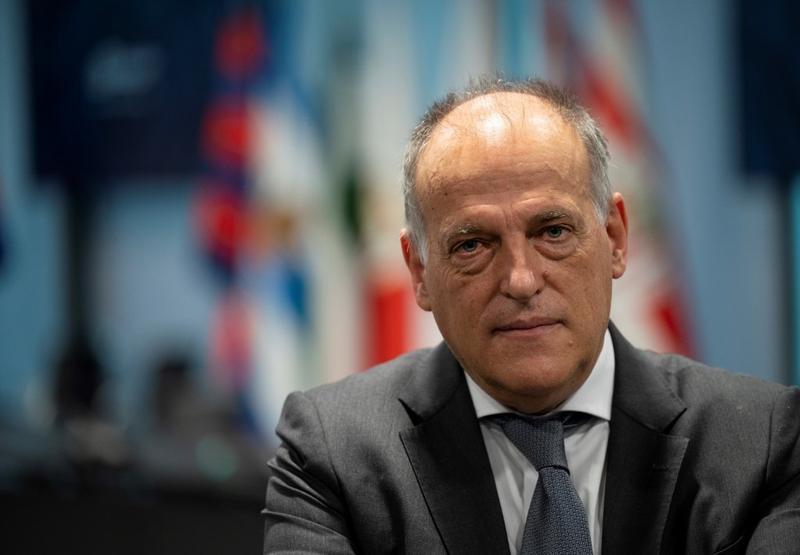
Top European clubs wishing to form a breakaway Super League would be shooting themselves in the foot as well as damaging the world football ecosystem, La Liga president Javier Tebas told Reuters.
Reports about a breakaway league have intensified since the Covid-19 pandemic wreaked havoc on the sport, obliging matches to be held behind closed doors and costing clubs an estimated 8.5 billion euros.
Tebas, however, said the Super League would not help clubs in the long term.
“Whether we have a pandemic or not, the Super League will not only destroy football in general by destroying domestic leagues, it will destroy the very clubs proposing it,” he said in an exclusive interview on Wednesday.
“It’s a project that could have some success in the short term but in the long term would be a disaster. The clubs aren’t conscious that making a radical change like that will damage them in the medium to long term too.”
Tebas said Real Madrid, Barcelona, Manchester United and Liverpool have been the driving forces behind the project, adding it was vehemently opposed by other clubs in Spain and worldwide.
Former Barcelona president Josep Maria Bartomeu said he had signed the Catalan club up to the Super League when he resigned in October.
Barca will elect a new president in March, however, and leading candidates Victor Font and Joan Laporta have expressed their concern with the project.
In December, Real president Florentino Perez alluded to the creation of a new competition, saying the crippling losses clubs had suffered due to the pandemic obliged them to “innovate”, adding reform to world football “could not wait”.
Tebas, however, questioned the wisdom of meddling with football’s current model due to the pandemic, predicting clubs would return to generating previous levels of revenue once vaccines were fully rolled out and fans returned to stadiums.
“The best thing is to continue with the current ecosystem, we have an excellent system of national leagues plus a Champions League which is financially strong, so we need to keep working on that,” he said.
“We cannot make radical changes which break the entire ecosystem. The current system protects everyone.
“We have to say ‘enough’ to clubs who just want more money for themselves and are willing to depreciate their national leagues, the Champions League and the history of European football. We have to say ‘enough’ to this selfishness.”
A document produced for the breakaway group outlines a plan for a 20-team league as an alternative to UEFA’s Champions League, made up of 15 permanent members and five annual qualifiers, playing between 18 and 23 matches per season.
Each club would earn 300 million euros (US$363 million) to sign up, the document said.
Tebas suggested United and Liverpool’s desire to create a competition with guaranteed places stemmed from the US sports background of the clubs’ owners.
Yet he said he struggled to see why Real Madrid and Barcelona, who belong to their club members, wished to sign up.
The Glazer family, which bought United in 2005, own NFL franchise Tampa Bay Buccaneers, while Liverpool belong to the Fenway Sports Group, which owns baseball’s Boston Red Sox.
“United and Liverpool have a different concept about the sports industry and attach a big importance to the value of their club in case they want to sell in the future,” he said.
“They could make more money from this but it doesn’t make sense for Real Madrid or Barcelona. I fail to understand why they want to put the entire ecosystem of football at risk to theoretically make a few more million euros.
“It’s incomprehensible. The money they make will not compensate for the fall in income across football. They have misguided illusions of grandeur.”
Liverpool, United and Real Madrid did not respond to requests for comment.
Tebas called on FIFA president Gianni Infantino to clarify his position regarding a Super League.
In response, FIFA referred Reuters to a statement signed by Infantino from soccer’s global governing body last week opposing the Super League and threatening to ban players participating in it from playing in the World Cup.

